A Corsi-Rosenthal box is a DIY air cleaner which outperforms commercially available options at a fraction of the cost.
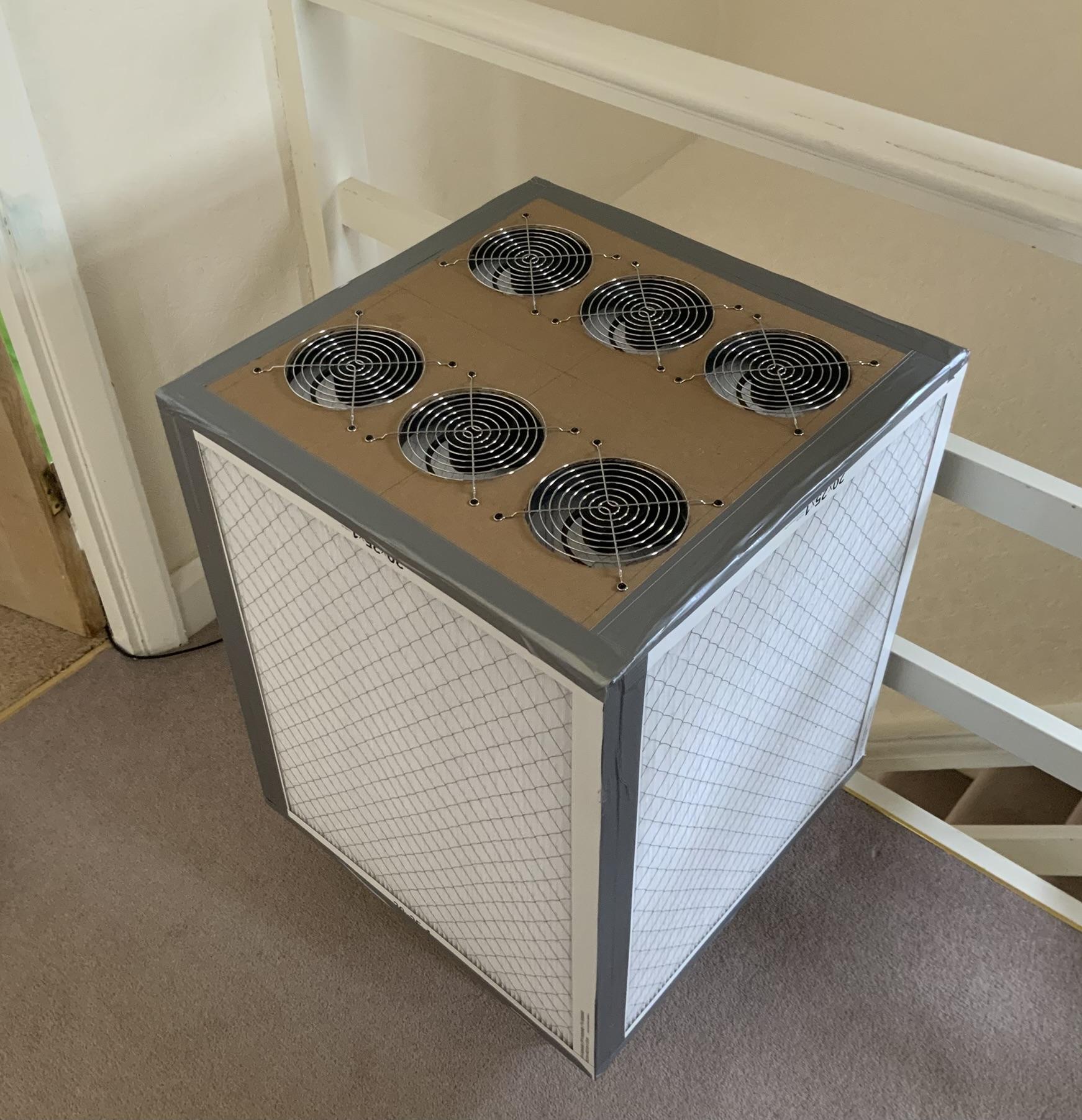
Sourcing the parts to build a Corsi-Rosenthal box outside of North America has some challenges. The ubiquitous box fan typically used is non-existent, and standardised filters are not readily available.
After doing some research on potential options I had found Stefan Stojanovic's research and testing on the topic, along with build guide. This looked promising, however I quickly discovered it was not possible to source the fan used anymore, and I was unable to find another viable options.
Eventually I stumbled across some variants that use PC fans, originally aimed at reducing the power consumption of running the system. I discovered that in testing an array of PC fans has negligible performance difference than a box fan in a CR-box.
Eventually, I was able to put together a parts list to be able to construct the box with somewhat available parts found in the UK (and I imagine available in many countries).
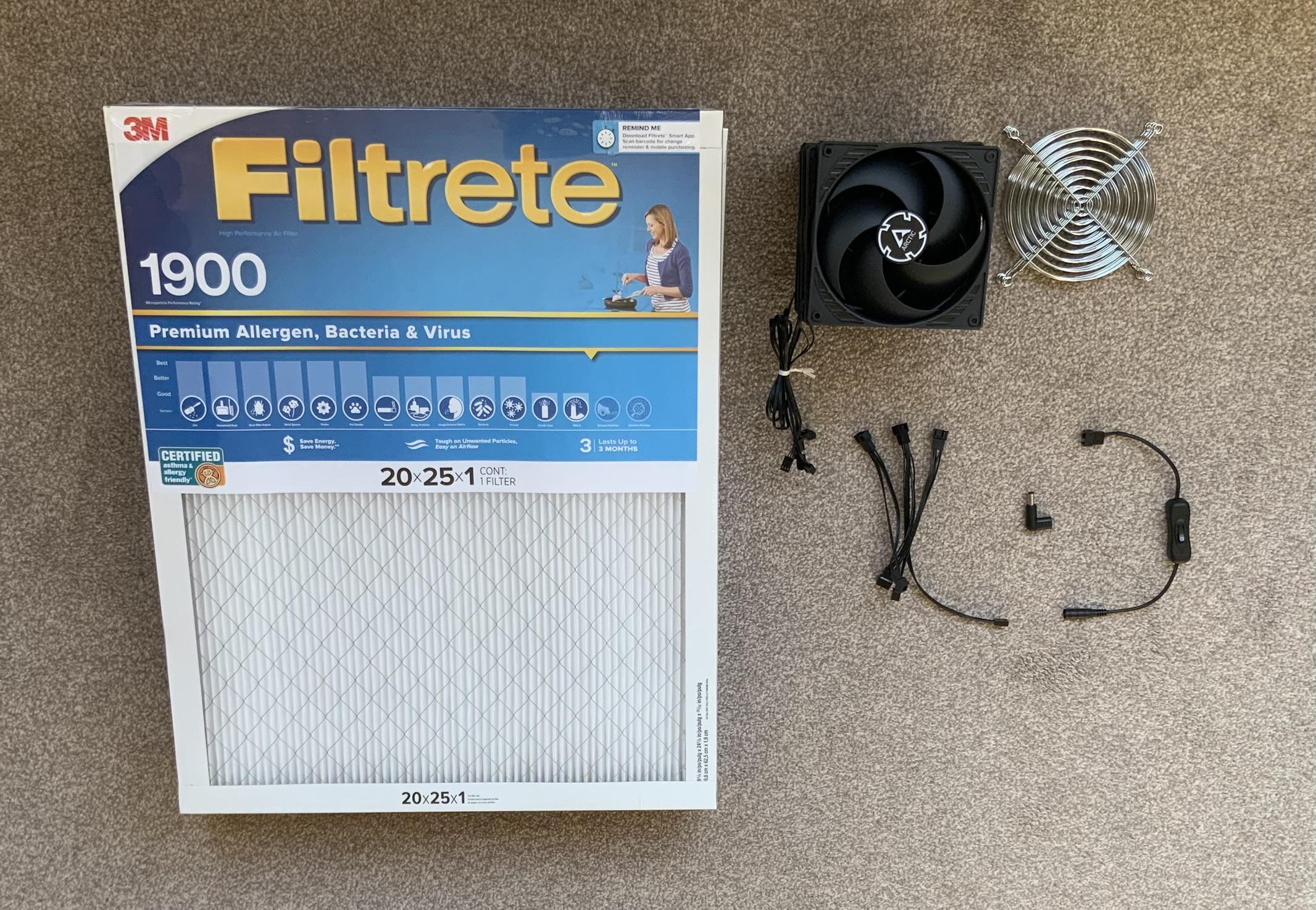
| # | Part | Price |
|---|---|---|
| 6x | Arctic P14 Fans 1 | £41 |
| 6x | Generic 140mm fan guards | £12 |
| 1x | USB-C PD to 12v DC5521 Adapter 2 3 | £8 |
| 1x | 12v DC5521 to 3/4-pin fan adapter | £7 |
| 1x | 3/4-pin fan splitter (1 -> 6 fans) | £5 |
| 1x | Ikea TRETAKT Smart Plug 4 | £6 |
| 4x | 3M Filtrete MPR 1900 (20x25x1) 5 6 | £140 |
| £215 |
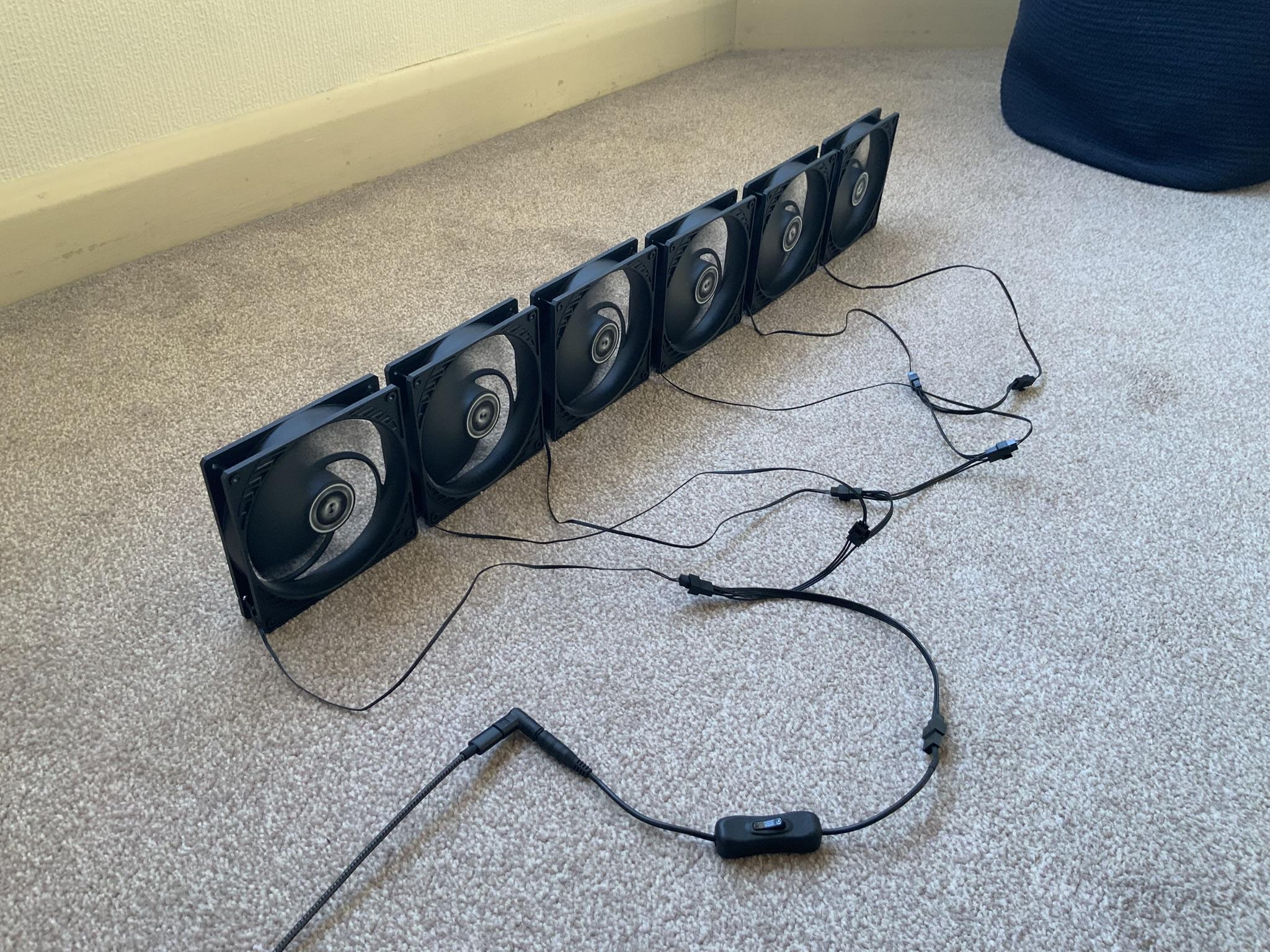
While constructing the lid which contains the fan, I had found that a utility knife worked best to cut circular holes in cardboard. I used additional cardboard layers glued together to reinforce the lid to that it is able to hold the weight of 6 fans.
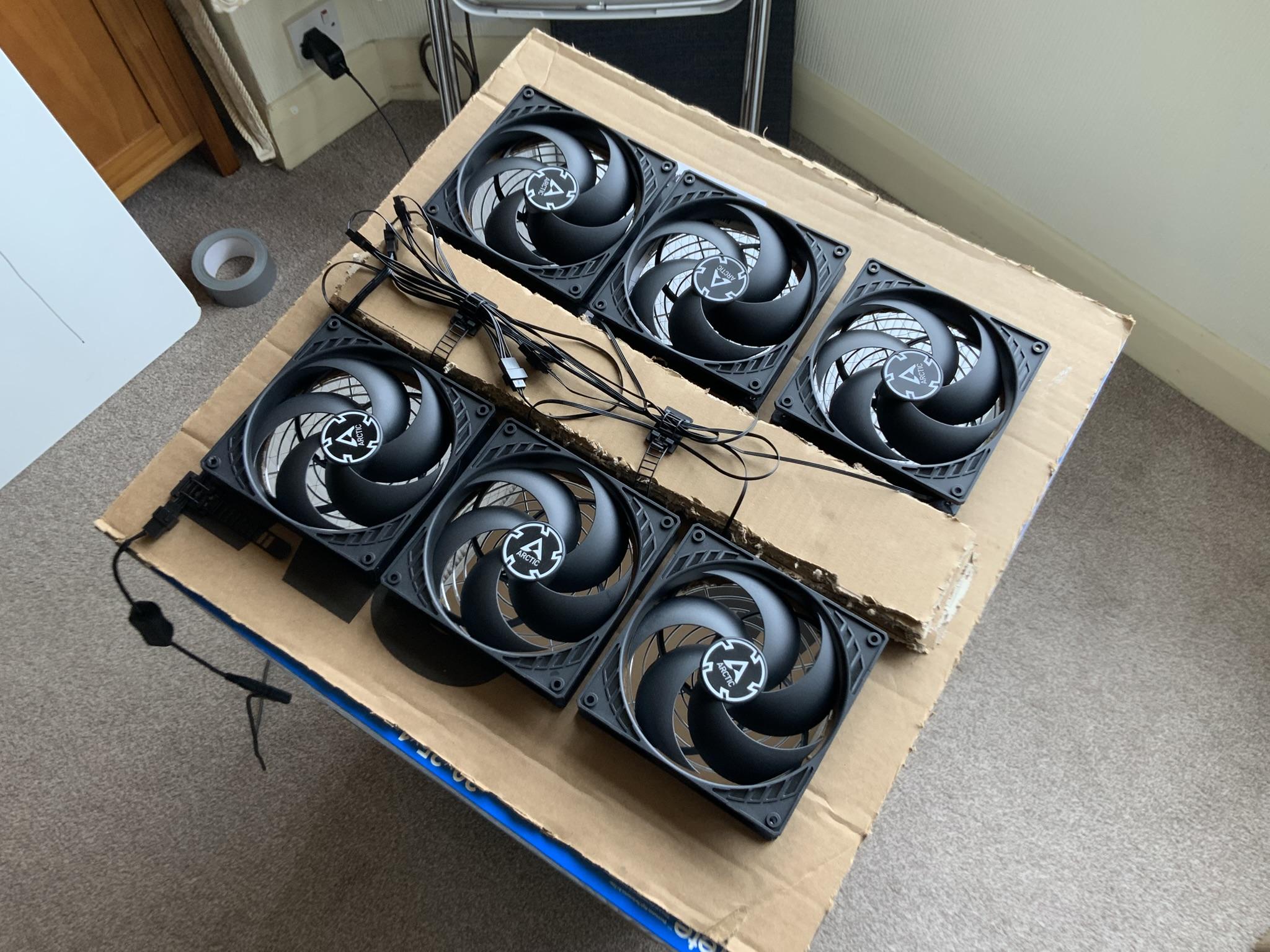
Overall, the CR-box meets expectations. I have previously built an air quality sensor which I am able to see that the CR-box is able to filter PM2.5 particulates effectively based on its measurements.
The blue dotted line indicates when the CR-box was deployed, on the 25th. When the box is operating the PM2.5's detected drop to less than 0.5 µg/m³, and build up over time when the system is off.
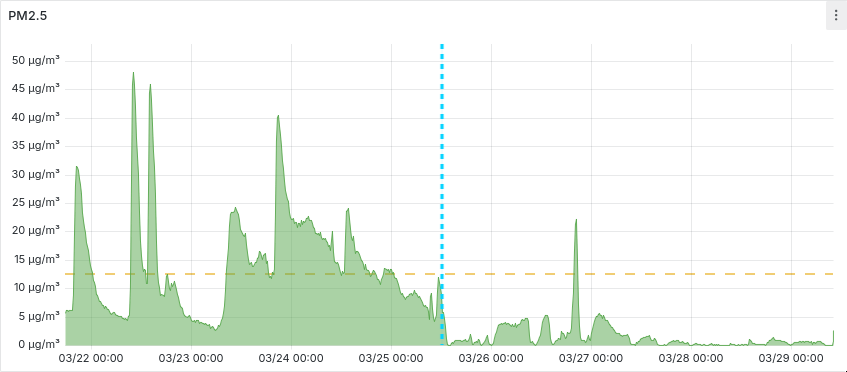
-
Arctic fans are relatively affordable and performant, used in the testing by Jim Rosenthal. ↩
-
USB-C PD allows using generic and efficient AC adapters. USB-C PD AC adapter and USB-C cable is not included in the parts list as I already had these. ↩
-
The selected fans operate at 12v at 0.15A each. Therefore the adapter needs to be able to drive over 10.8w. ↩
-
A smart plug will allow automatically running the CR box either on a schedule, or in reaction to the measured air quality. ↩
-
A MERV 13 filter appears to be more than sufficient for my use-case, if it was available a cheaper MERV 11 option may be better suited. ↩
-
To cut down on waste, washable/reusable options are available, such as K&N Lifetime series. I had not found any performance data in a CR-box, however will research further if/when the filters need replacing. Sourcing them may be challenging. ↩